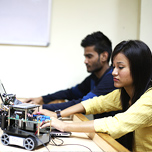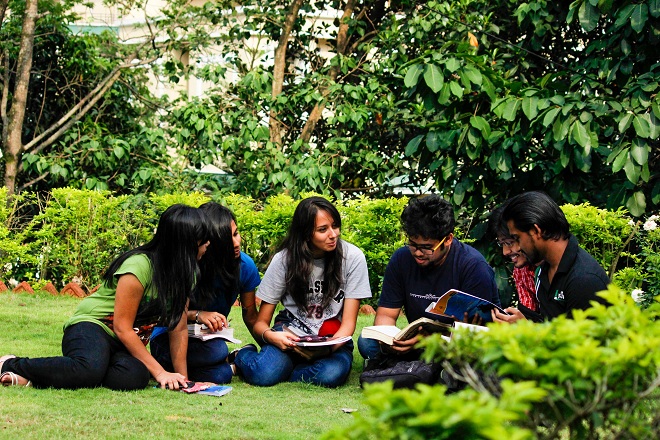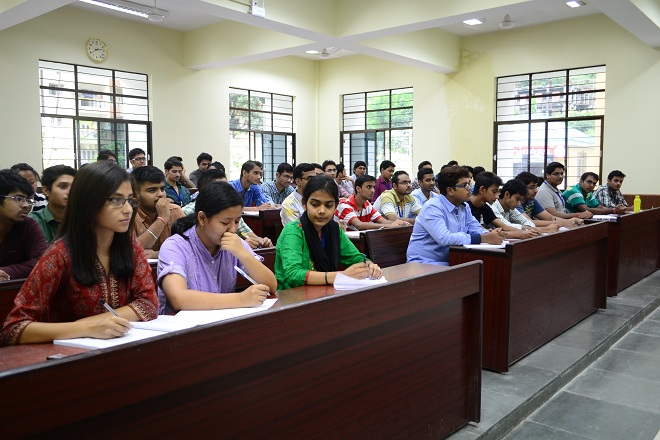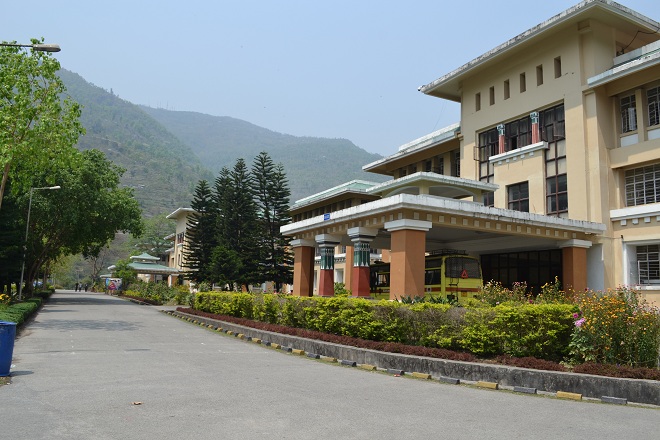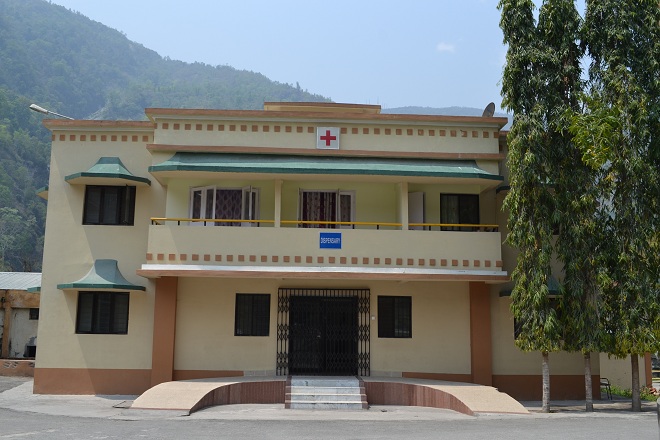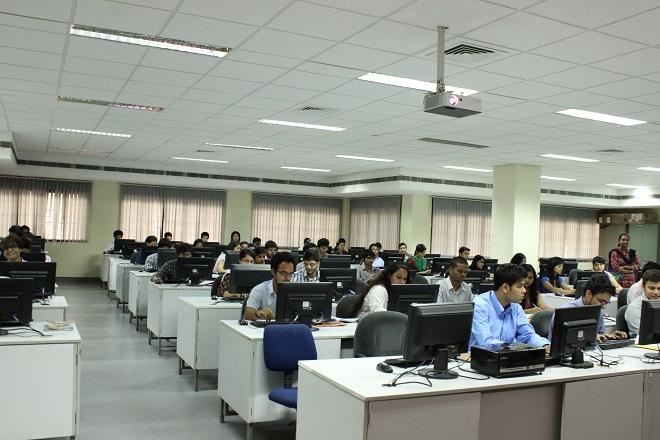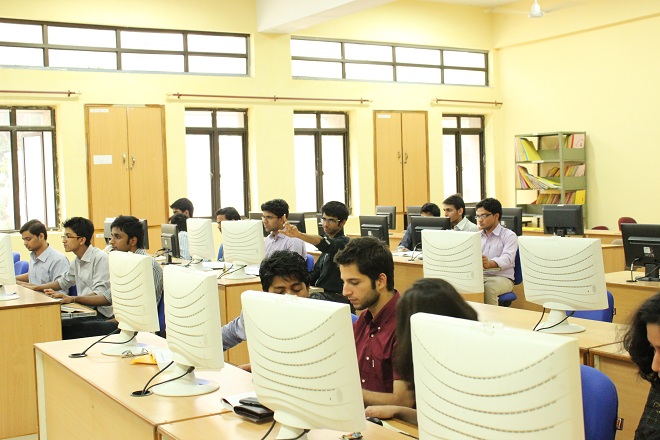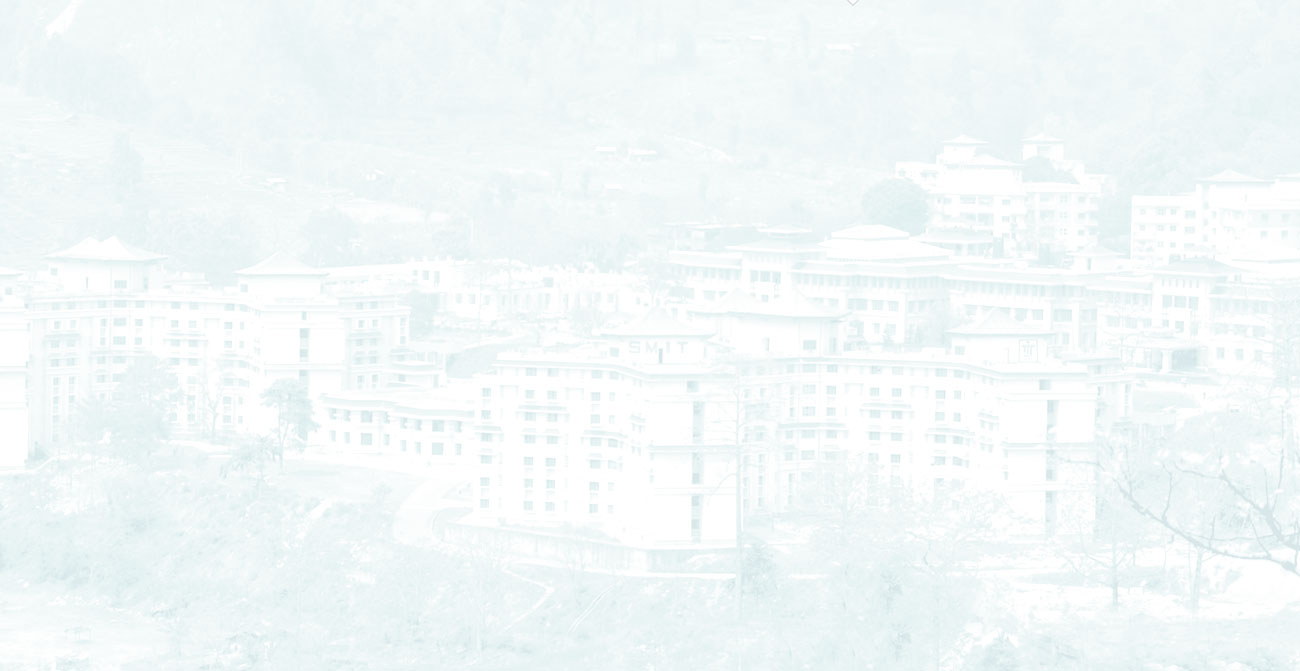OVERVIEW
The B.Tech program in Electronics and Communication Engineering involves subjects which imparts the state of the art knowledge to the students to learn about design, analysis & application of electronics & communication circuits and allied areas.
Vision
|
Mission
|
Objectives
|
To achieve eminence in the field of quality techno-logical education and research in Communication, Remote Sensing, VLSI & Embedded System and other Electronics related fields.
|
To develop into a department of excellence capable of producing competent techno-managers who can contribute effectively to the advancement of the society.
|
To prepare students to identify, formulate and solve real life and industrial problems with their knowledge of electronics and communication engineering.
To develop techno-managerial ability to execute assigned responsibilities.
To provide the guidance to develop moral and ethical attitudes.
To provide education to adopt novel technologies towards the betterment of human life and society.
|
Program Educational Objectives (B. Tech in Electronics and Communication Engineering)
|
- Ability to carry out challenging works and formulate suitable solution in the field of Electronics & Communication Engineering.
- To exhibit good spirit of team work and able to lead the team.
- To train students with high ethical, moral and special values such that there is beneficial contribution to the society.
- Ability to work in multidisciplinary fields and a strong desire to learn and pursue research work.
- Ability to apply knowledge of mathematics, science and engineering for finding solution to the real problems.
|
PROGRAM OUTCOME
- Engineering knowledge: Apply the knowledge of mathematics, science, engineering fundamentals, and an engineering specialization to the solution of complex engineering problems.
- Problem analysis: Identify, formulate, review research literature, and analyze complex engineering problems reaching substantiated conclusions using first principles of mathematics, natural sciences, and engineering sciences.
- Design/development of solutions: Design solutions for complex engineering problems and design system components or processes that meet the specified needs with appropriate consideration for the public health and safety, and the cultural, societal, and environmental considerations.
- Conduct investigations of complex problems: Use research-based knowledge and research methods including design of experiments, analysis and interpretation of data, and synthesis of the information to provide valid conclusions.
- Modern tool usage: Create, select, and apply appropriate techniques, resources, and modern engineering and IT tools including prediction and modeling to complex engineering activities with an understanding of the limitations.
- The engineer and society: Apply reasoning informed by the contextual knowledge to assess societal, health, safety, legal and cultural issues and the consequent responsibilities relevant to the professional engineering practice.
- Environment and sustainability: Understand the impact of the professional engineering solutions in societal and environmental contexts, and demonstrate the knowledge of, and need for sustainable development.
- Ethics: Apply ethical principles and commit to professional ethics and responsibilities and norms of the engineering practice.
- Individual and team work: Function effectively as an individual, and as a member or leader in diverse teams, and in multidisciplinary settings.
- Communication: Communicate effectively on complex engineering activities with the engineering community and with society at large, such as, being able to comprehend and write effective reports and design documentation, make effective presentations, and give and receive clear instructions.
- Project management and finance: Demonstrate knowledge and understanding of the engineering and management principles and apply these to one’s own work, as a member and leader in a team, to manage projects and in multidisciplinary environments.
- Life-long learning: Recognize the need for, and have the preparation and ability to engage in independent and life-long learning in the broadest context of technological change.
PROGRAM SPECIFIC OUTCOMES
COURSE OUTCOME, PROGRAM OUTCOME AND COURSE SYLLABUS
CAREER OPPORTUNITY
- Industrial training is a part of the curriculum where students have to work in an industry which is related to their area of interest for a minimum period of 4 weeks. Essentially, this gives them an exposure to the technology in practice and industrial environment.
- Seminars included in the curriculum helps them to experience self-learning and develop communication and interpersonal skills.
- Various clubs operated at the department level train the students on various aspects related to the industrial requirements such as technical projects and opportunity to participate in competitions.
- Research activity in the department encourages them for innovations and lifelong learning.
- Workshops & conferences held at the department and institution level provides them with the relevant exposure.
- There are opportunities for students in technical activities through technical clubs such as IEEE student branch.
- Some of the departmental Labs are World Class like Advanced Communication LAB at 7th Semester Level which is being upgraded on regular basis to make the students industry ready. Students prefers to use those Labs as carrier opportunity for them.
Some of the major companies where the students get placed are Dell India, Nexgen, Solarize Global, Sprinklr, Zebronics, Ags, Click on Care, Rechner Software, Shriram Finance, Mage, Ericsson, Bureau Varitas, karvy, Amazon Support, Fl Smidth, Amazon Development, Cummins, Asahi India Glass, Intel, Safran, Zaloni, Just Dial, ITC Infotech, CGI, IXIA, ThoughtWorks, Bosch, Poornam Infovision, Tech Mahindra, Wipro, Think & Learn, Wells Fargo.
ELIGIBILITY
- B.Tech. - Passed 10+2/equivalent with 45% marks (40% in Reserved Category) in Physics & Maths (Mandatory) and any one from the following: Computer Science / Electronics / Information Technology / Biology / Chemistry /Informatics Practices / Biotechnology / Technical Vocational subject / Engineering Graphics / Business Studies / Entrepreneurship."Graphics / Business Studies / Entrepreneurship.
- B.Tech. [L.E.] - Passed Diploma in any branch in Engineering and Technology with at least 45% marks (40% in Reserved Category) OR BSc with at least 45% marks (40% in Reserved Category) and passed 10+2 exam with Mathematics as a subject OR passed D.Voc stream in the same or allied sector.
ENTRANCE EXAMINATION
a) General Category, Defence, North East, Gorkha Territorial Administration (GTA) and Paramilitary Force Categories:
- The candidates will have to appear for the JEE to be conducted by the CBSE.
- Cut-off JEE Main Score in All India JEE applicable to all reserved categories will be displayed on our website www.smu.edu.in.
b) Sikkim Category:
- Candidates should apply to the Director, Technical Education, HRDD and Government of Sikkim. They should appear in the entrance test conducted by the Government, the details of which will be notified by the Director, HRDD, Technical Education.
c) MU-OET Category:
- Manipal University Online Entrance Test (MU-OET)
d) SMIT Online Test:
- Candidates seeking admission under this category will have to appear for online test conducted by SMU.














